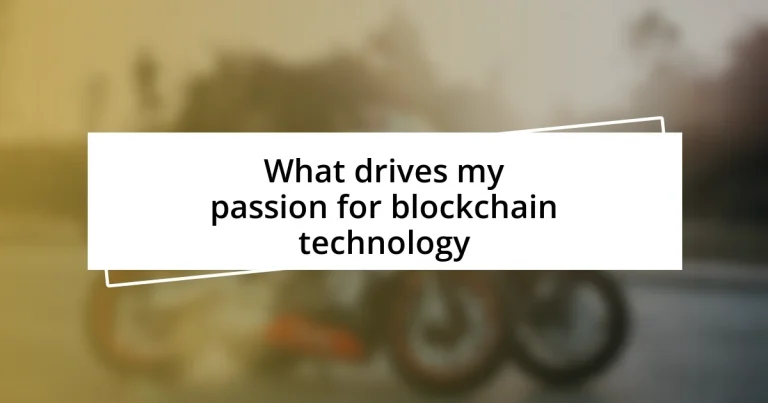Key takeaways:
- Blockchain technology offers a decentralized digital ledger that enhances transparency, reduces reliance on traditional institutions, and raises questions about privacy.
- Real-world applications of blockchain span various industries, including supply chain management, healthcare, and voting systems, promoting efficiency, security, and ethical practices.
- Future trends in blockchain include increased interoperability, integration with artificial intelligence for data analysis, and a focus on sustainability to address environmental concerns.
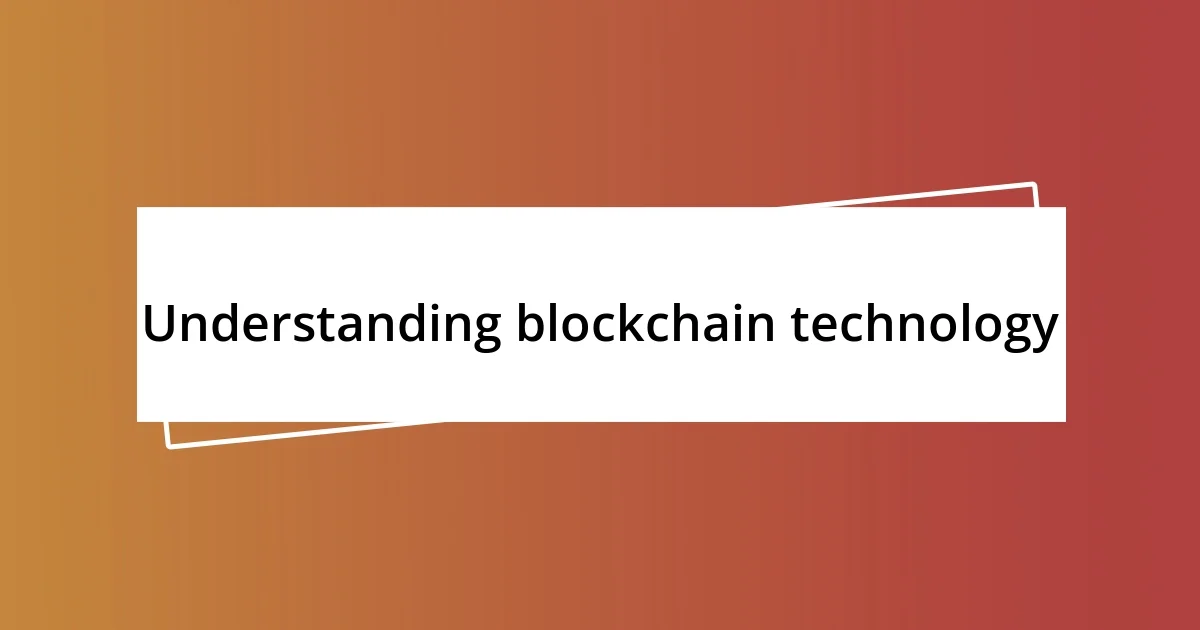
Understanding blockchain technology
Blockchain technology is often described as a decentralized digital ledger that records transactions across many computers. This means that once information is entered into the blockchain, it becomes nearly impossible to alter or delete—like an unchangeable diary that everyone can read but no one can rewrite. Isn’t it fascinating to think about how this authenticity can transform industries from finance to healthcare?
I remember the first time I grasped this concept; it felt like uncovering a hidden truth about trust. Imagine if you could verify a transaction without a mediator, like a bank. This power not only reduces reliance on traditional institutions but also empowers individuals, making me reflect on how technology can reshape our relationships with money and data.
An important aspect of blockchain is its transparency. Every participant in the network can see the entire chain of transactions. This openness can build trust, but it also raises questions about privacy. How do we balance the need for transparency with protecting personal information? Personally, I find myself leaning towards transparency, as it aligns with my belief in accountability and ethical practices in technology.
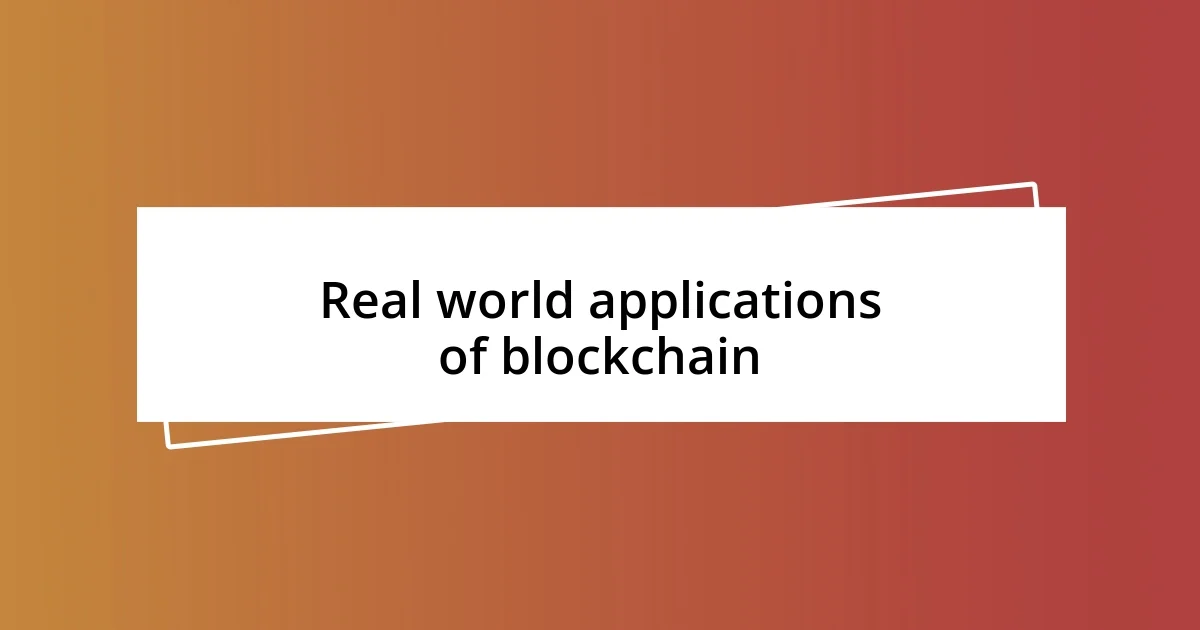
Real world applications of blockchain
When I look at the real-world applications of blockchain, I can hardly contain my excitement. It’s not just about cryptocurrencies anymore; blockchain is revolutionizing industries in ways I never imagined. For instance, in supply chain management, tracking products from source to shelf enhances accountability and reduces fraud. This level of transparency can significantly impact consumers, ensuring they know the origin of their products.
Here are a few compelling applications of blockchain technology:
- Supply Chain Tracking: Ensures product authenticity and traceability.
- Healthcare Records: Gives patients control over their medical history while maintaining privacy.
- Smart Contracts: Automates agreements and transactions without intermediaries.
- Voting Systems: Promotes secure and transparent electoral processes.
- Digital Identity Verification: Enhances security and reduces identity theft.
I vividly recall a discussion I had with a friend who works in logistics. He shared how implementing blockchain could cut processing time for shipments and improve trust with their partners. The potential of blockchain to streamline operations while enhancing trust was a lightbulb moment for me. It’s this promise of efficiency and integrity across numerous sectors that fuels my passion for this technology.
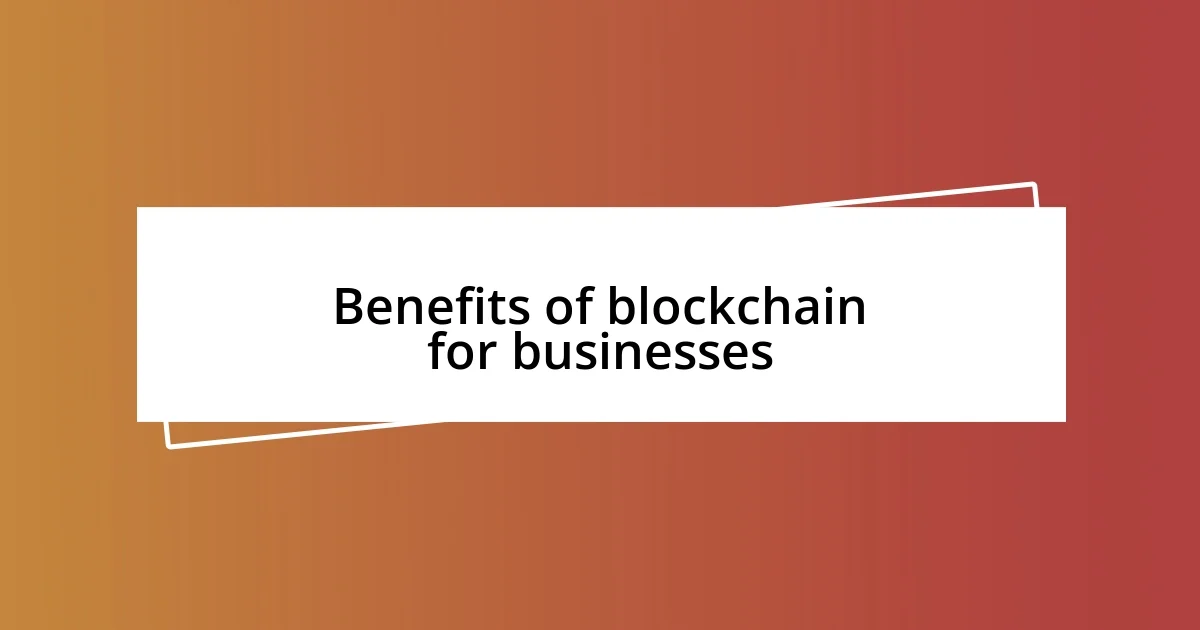
Benefits of blockchain for businesses
Blockchain technology offers transformative benefits for businesses, particularly in enhancing efficiency and reducing costs. The ability to automate processes through smart contracts can eliminate middlemen, expediting transactions and minimizing errors. From my experience, I’ve seen how this can lead to significant time savings, allowing companies to focus resources on growth rather than administrative tasks.
Moreover, the security that blockchain provides cannot be overstated. By utilizing cryptographic methods, businesses can safeguard sensitive data against cyber threats. I recall a conversation with a cybersecurity expert who emphasized how blockchain’s decentralized nature makes it nearly impervious to hacks, something that immediately resonated with my belief in enhancing data integrity.
Finally, the transparency inherent in blockchain fosters trust among stakeholders. Everyone involved can easily verify transactions without any doubt. This reliability can cultivate stronger relationships with customers and partners alike. It reminds me of the first time I learned about a blockchain-based tracking system that ensured ethical sourcing for a brand. The pride I felt knowing that transparency could lead to ethical consumerism was a pivotal moment that solidified my passion for this technology.
| Benefit | Description |
|---|---|
| Efficiency | Automates processes, reducing time and cost. |
| Security | Offers enhanced data protection against cyber threats. |
| Transparency | Builds trust through verifiable transactions. |
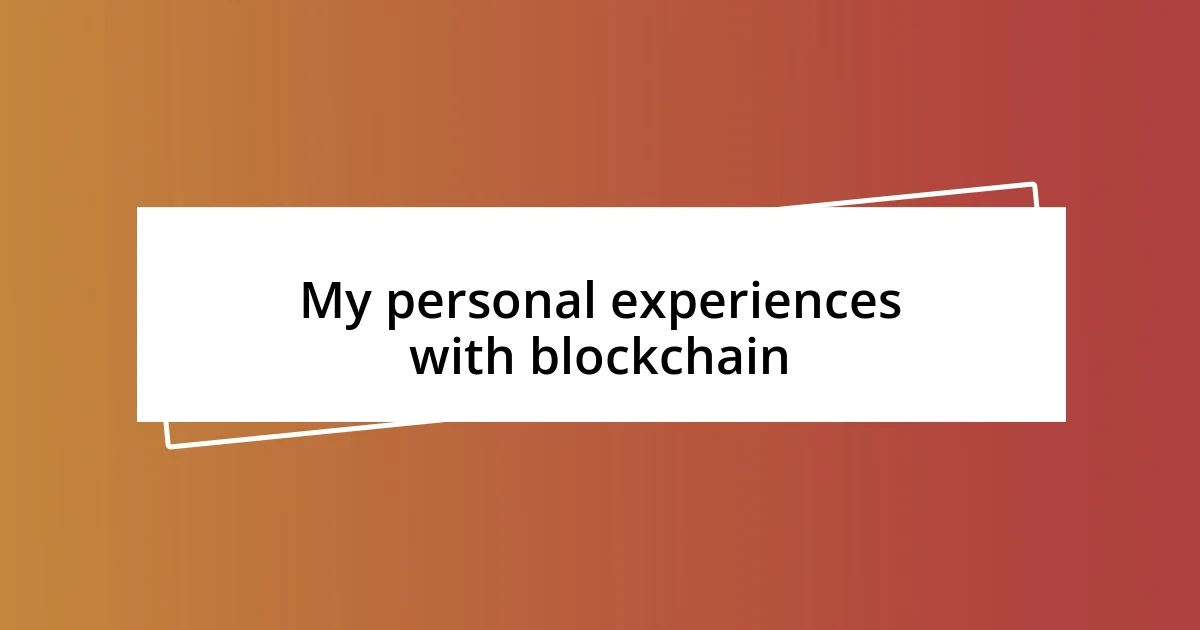
My personal experiences with blockchain
I still remember the first time I stumbled upon a blockchain-based payment platform while researching for a project. It felt like discovering a hidden gem; the convenience and security it offered were like nothing I had encountered before. I couldn’t help but wonder, how could such a powerful technology stay under the radar for so long? After experimenting with it, I was hooked on the idea of transactions being both swift and secure. It ignited my passion to explore blockchain more deeply.
One of my most impactful experiences occurred during a conference where I listened to a panel of experts debate the future of digital currencies. The energy in the room was palpable; I could feel the passion radiating from the speakers. They spoke not just of financial innovation but of democratising access to financial systems for the unbanked. It struck me—this wasn’t just a tech revolution; it was a social movement. I was moved by the potential for blockchain to truly change lives, and it deepened my commitment to this field.
As I dove into various blockchain communities online, I realized how much the ethos of collaboration and innovation resonated with me. Sharing ideas, troubleshooting, and celebrating each other’s breakthroughs made me feel part of something larger. There’s an invigorating sense of purpose in contributing to a technology that could reshape our futures. It’s a feeling I cherish, knowing that I’m not just a spectator but an active player in this transformative journey. What could be more exciting than being involved in something so groundbreaking?
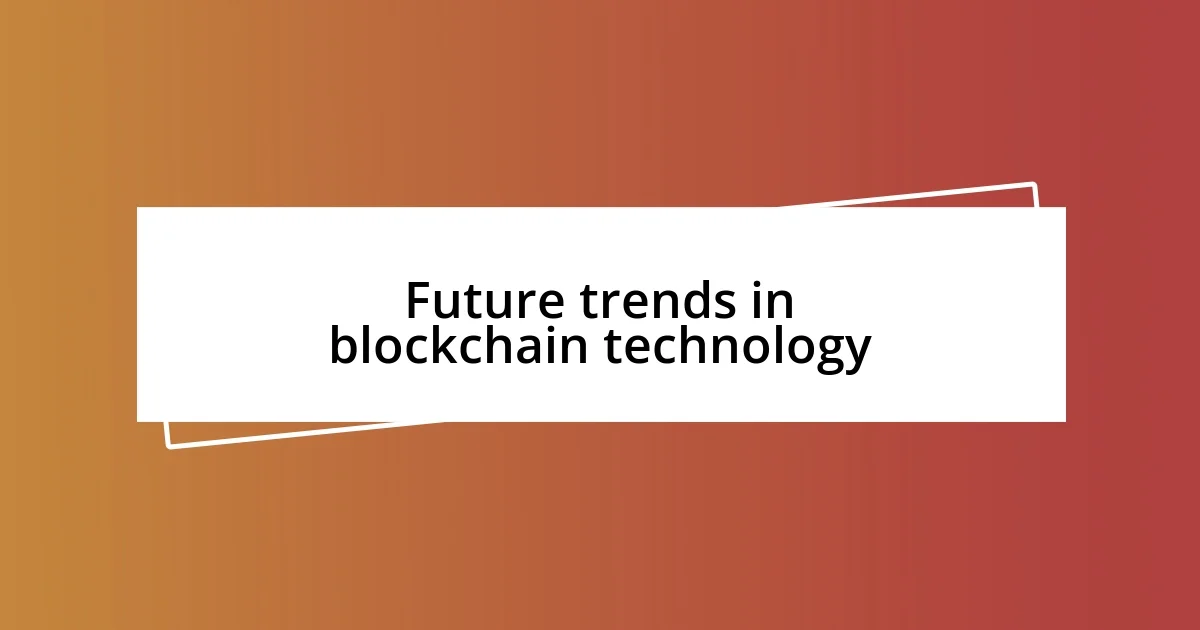
Future trends in blockchain technology
As I reflect on the future of blockchain technology, I can’t help but get excited about the rise of interoperability among different blockchains. Imagine a world where different blockchain networks communicate seamlessly with one another! It will be fascinating to watch how this trend evolves, especially since such connectivity could broaden use cases significantly. In my experience, the more interconnected our systems become, the more innovation will flourish, leading to solutions we can’t even envision yet.
Another compelling trend is the incorporation of artificial intelligence (AI) into blockchain solutions. Just think about the possibilities—AI algorithms analyzing blockchain data for enhanced decision-making. This combination could bring an unprecedented level of insight into patterns, helping organizations not only to optimize operations but also to predict market trends more accurately. I’m curious about how this integration will unfold because it could redefine our understanding of data utility.
Moreover, the focus on sustainability within blockchain initiatives will play a crucial role in shaping its future. I recall a discussion I had with a developer involved in eco-friendly blockchain projects, and I was inspired by their vision of greener consensus mechanisms. With rising concerns about energy consumption, seeing innovative solutions focused on reducing environmental impact excites me. Isn’t it remarkable how technology can evolve to meet our societal challenges? I can’t wait to witness these advancements unfold, aligning blockchain’s potential with the needs of our planet.












